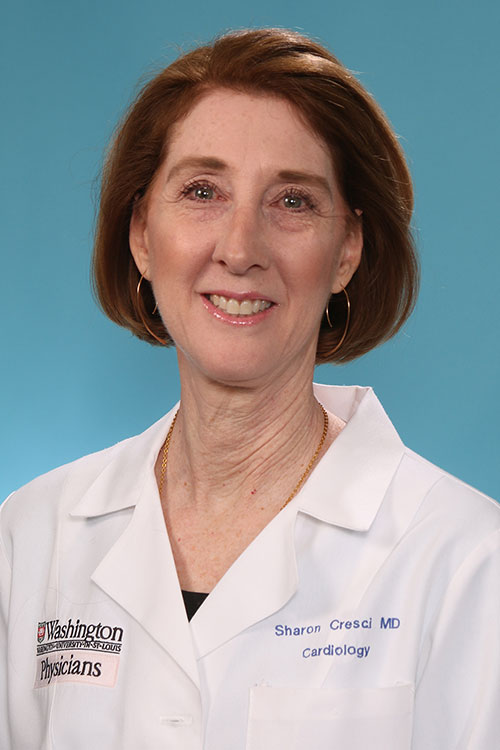Cresci spearheads precision medicine statement for heart failure
Cardiologist chairs American Heart Association’s personalized medicine statement

Cresci
Sharon Cresci, MD, an associate professor of medicine and of genetics in the Cardiovascular Division at Washington University School of Medicine in St. Louis, led a committee that developed the American Heart Association’s (AHA) scientific statement on the potential for precision medicine to improve treatment for patients with heart failure.
The statement is published Sept. 12 in the journal Circulation: Genomic and Precision Medicine.
Heart failure is a condition in which the heart gradually loses its ability to pump sufficient blood throughout the body. It can develop following a heart attack or other cardiac injury, such as a viral infection, for example, that damages the heart muscle.
Cresci and her colleagues outline how treatment for heart failure soon may become more tailored for individual patients based on knowledge of genetics, metabolism and other factors in a patient’s biology or environment. Precision medicine also may allow doctors to predict which patients are most likely to develop heart failure, allowing for the possibility of prevention.
New understandings of genetic variation, protein interactions, metabolism, drug delivery, artificial intelligence techniques and even the gut microbiome are opening the door for precision medicine to identify patients who might benefit from common treatments and those who might need other strategies. Before prescribing medication, doctors might be able to identify patients likely to have an adverse reaction to a popular drug, for example, allowing them to select a different treatment approach. Newer clinical trials evaluating therapies for heart failure also are seeking more diverse patient populations to be able to optimize treatment for various patient groups.
According to Cresci and her colleagues, this is an exciting time for the field of precision medicine in addressing heart failure. She emphasized the need for developing new programs and infrastructure as well as specialized training for clinicians to put these innovations into practice.






